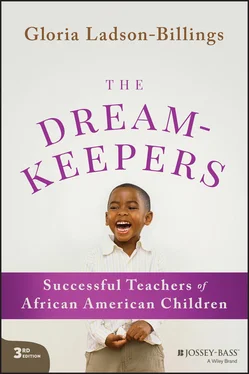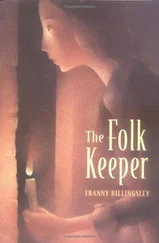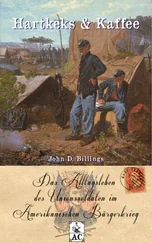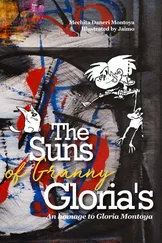It is possible to see the effective use of urban youth culture in work by Emdin 2 and Rawls and Robinson 3 as well as in projects like “Science Genius” and #HipHopEd, which is a weekly Twitter ®chat for teachers, students, scholars, artists, and community activists that discusses how youth culture impacts education. An excellent example of the merger of youth culture and student learning is Urban Word NYC, where Michael Cirelli serves hundreds of students from New York City Public Schools as well as incarcerated and homeless youth. Students who participate in Urban Word NYC programs write and perform spoken-word pieces. The US Youth National Poet Laureate program is run out of Urban Word NYC and in 2017 I had the opportunity to serve as a judge for the US Youth National Poet Laureate Program. Our judges panel selected a young woman from Los Angeles, CA, whose biography indicated she had battled a speech impediment and some cognitive processing issues. That woman’s name is Amanda Gorman—yes, the very same Amanda Gorman who became the youngest poet to deliver a poem at a Presidential Inauguration in 2021 and perhaps the only poet to deliver a poem at the SuperBowl!
So, in this edition of Dreamkeepers , I attempt to help teachers consider ways youth culture may be infused in classrooms to increase engagement, support student learning, develop cultural competence, and encourage critical consciousness. Thirty years may have passed, but I am convinced that our students still need Dreamkeepers to ensure their individual, family, community, and cultural dreams come true.
1 1. Emdin, C. For White folks who Teach in the Hood… and the Rest of Y’all Too: Reality Pedagogy and Urban Education. Boston, MA: Beacon Press, 2016.
2 2. Paris, D., and Alim, H. S. (Eds). Culturally Sustaining Pedagogies. New York: Teachers College Press, 2017.
3 3. Rawls, J., and Robinson, J. Youth Culture Power: A #hiphoped Guide to Building Teacher-Student Relationships and Increasing Student Engagement. New York: Peter Lang, 2019.
No challenge has been more daunting than that of improving the academic achievement of African American students. Burdened with a history that includes the denial of education, separate and unequal education, and relegation to unsafe, substandard inner-city schools, the quest for quality education remains an elusive dream for the African American community. However, it does remain a dream—perhaps the most powerful for the people of African descent in this nation.
The power and persistence of the metaphor of the dream has defined the sojourn of African Americans in the United States. From the words of the Bible to the poetry of Langston Hughes to the oratory of Martin Luther King, Jr., African Americans’ struggle against all odds has been spurred on by the pursuit of a dream.
Perceived as the most direct avenue to the realization of the dream, education and access to schooling have been cherished privileges among African Americans. Slaves were not allowed to learn to read or be educated, and this has underscored the possibility and power of education for liberation. The chronicle of the civil rights movement in the United States illustrates the centrality of education to the fight of African Americans for equal opportunity and full citizenship. Thus, Central High School in Little Rock, Arkansas; the University of Mississippi; the University of Alabama; the Boston Public Schools; and Brownsville, New York, all symbolize the willingness of African Americans to sacrifice all for the sake of education.
But today African Americans find themselves in a downward spiral. African American students lag far behind their white counterparts on standard academic achievement measures. At the same time, the very society that experienced a civil rights revolution finds itself locked in the grips of racism and discrimination. Almost forty years after a Supreme Court decision declaring separate but equal schools to be illegal, most African American students still attend schools that are in reality segregated and unequal.
However, The Dreamkeepers is not about the despair. Rather, it is about keeping the dream alive. The significance of this book can be found in the changing demographics of our nation’s public schools. Children of color constitute an increasing proportion of our students. They represent 30 percent of our public school population. In the twenty largest school districts, they make up over 70 percent of total school enrollment. Conversely, the number of teachers of color, particularly African American, is dwindling. African American teachers make up less than 5 percent of the total public school teaching population. Further, many teachers—white and black alike—feel ill-prepared for or incapable of meeting the educational needs of African American students.
Based on a study of a group of excellent teachers, this book provides exemplars of effective teaching for African American students. Rather than a prescription or a recipe, this book offers the reader models for improving practice and developing grounded theory, through a look at the intellectually rigorous and challenging classrooms of these teachers in a low-income, predominantly African American school district.
I have written this book with three voices: that of an African American scholar and researcher; that of an African American teacher; and that of an African American woman, parent, and community member. Thus the book offers a mixture of scholarship and story—of qualitative research and lived reality. I have relied heavily on “story” as a means of conveying the excellent pedagogical practice of the teachers studied. Increasingly, in fields such as law, education, ethnic studies, and feminist studies, story has gained credence as an appropriate methodology for transmitting the richness and complexity of cultural and social phenomena. Thus the audience for this book may be broad and varied.
The book is both reflective and empirical. At its center is the story of the pedagogical practice of eight exemplary teachers. However, my own experiences as an African American student who successfully negotiated public schooling provide a backdrop for my understanding of that practice. What was there in my schooling experiences that allowed me to persevere and prevail? I am not dismissing the fact that my schooling took place in a different and, perhaps, simpler time. Yet I retain vivid memories of ways in which schooling affected me both positively and negatively, and those memories help me see and understand current classroom practices.
Because of my decision to write in this way I break at least two scholarly conventions. First, I diminish the primacy of “objectivity” as I write both of my own life and memories as an African American student and of the lives and experiences of this group of effective teachers. Second, I write in a style that may be seen as methodologically “messy,” as I discuss issues at both the classroom level and the school level. I do this because it is an opportunity to reinforce the fluidity and connection between the individual and the group in which teachers and students do their work.
I could have chosen to write this book in the dominant scholarly tradition—statement of the problem, review of the literature, methodology, data collection, analysis, and implications for further research. Indeed, this is what I was trained to do. But that tradition rejects my necessary subjectivity. Thus I chose to integrate my “scholarly” tools with my knowledge of my culture and my personal experiences.
Multicultural teacher educators will find this book a useful addition to the literature on curricular and instructional issues concerning African American students. Practicing teachers and student teachers will have an opportunity to create appropriate strategies and techniques for their own classrooms based on those shown in this book. Parents and community members will be able to use the book as a “talking point” to help outline the redesign of community schools that better meet the needs of their students.
Читать дальше












